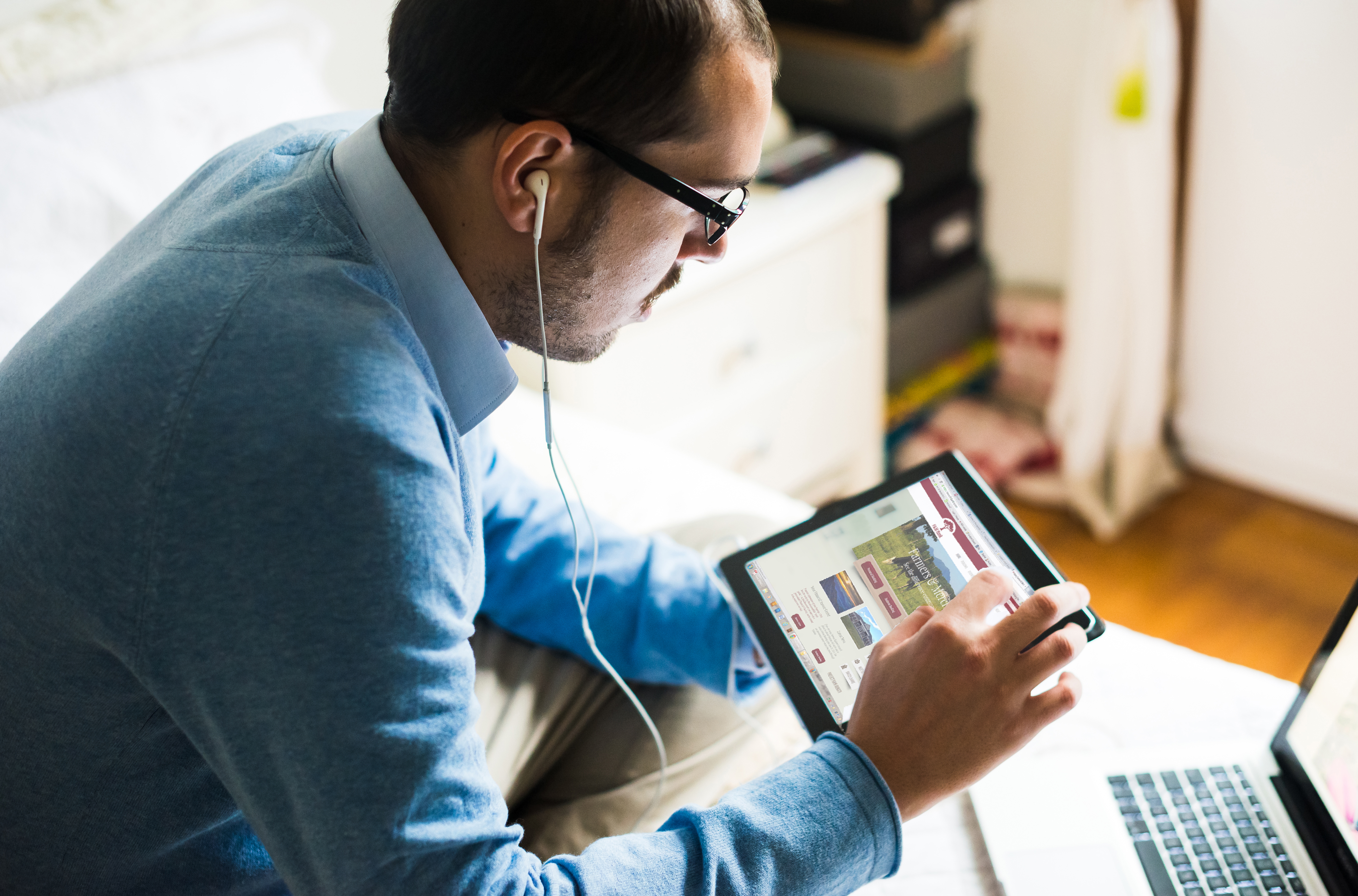Online Banking? To use or not to use, that is the question?
Online Banking? To use or not to use, that is the question?
Tips and best practices for online banking
By Jackie Burner, Assistant Branch Manager, F&M Bank Bridgewater
 Thirty eight years ago when I started in banking you didn’t hear about the internet or online banking.
Thirty eight years ago when I started in banking you didn’t hear about the internet or online banking.
According to Wikipedia, experiments with online banking started during the early 1980’s, but it wasn’t until October 6, 1995 that Presidential Savings Bank first offered customers with an online alternative to the traditional banking experience. It wasn’t long afterwards that Chase and other large banks jumped on board. Today, internet banking is the norm.
Maybe you are like me and early on decided that you would never use the internet and especially online banking. To have a personal computer in my home seemed outrageous, but as the years moved on, I knew that I was fighting a battle I couldn’t win. Computers and the internet were here to stay.
The very first computers took up an entire room. Where was I to put such a machine? I chuckle now as I look at my iPhone® which will do about anything I want it to, including my banking.
Now that we have a little history, I would like to discuss some questions customers usually have about online banking.
Is it safe?
One key to your safety when doing anything online, including your banking, is your personal login. Your bank has done its part to keep your accounts safe. Consider these tips to make sure you are doing your part.
-when choosing your user ID and password make sure that it’s difficult for others to guess. Don’t use your own name or nicknames that others may know. Make sure you use both upper and lower case letters, numerals and even punctuation marks if allowed by your financial institution’s software. Passwords should never be shared with others. I would recommend not using birthdates, phone numbers or street addresses. I know we love our children and grandchildren, but this is not a good place to use them. Another idea is acronyms for a sentence. For example, (I love my Farmers and Merchants bank family! becomes- IlmFaMbf!)
-Change your password occasionally. It doesn’t have to be weekly or monthly, but maybe every six months or a year
–Don’t use the same ID and password on all your secure sites. If someone would figure out your password for your grandchildren’s pictures, they would have the password to your online banking. Make your online banking login unique.
–Don’t share your information with anyone. This includes the person on the phone claiming to be your bank. No one from your bank will ever need to know your password.
–Shut it down. Always make sure that you sign off when you are finished with your online banking. Don’t just close your browser, but actually sign off or exit the program. The bank’s software will automatically log you out after a lull in activity, but leaving your ID logged in leaves a gap in your security.
I have found internet banking to be very simple and saves a lot of time. Use the necessary precautions and enjoy your journey.
Next time we will discuss some ways you can use your online banking to make your life easier.



